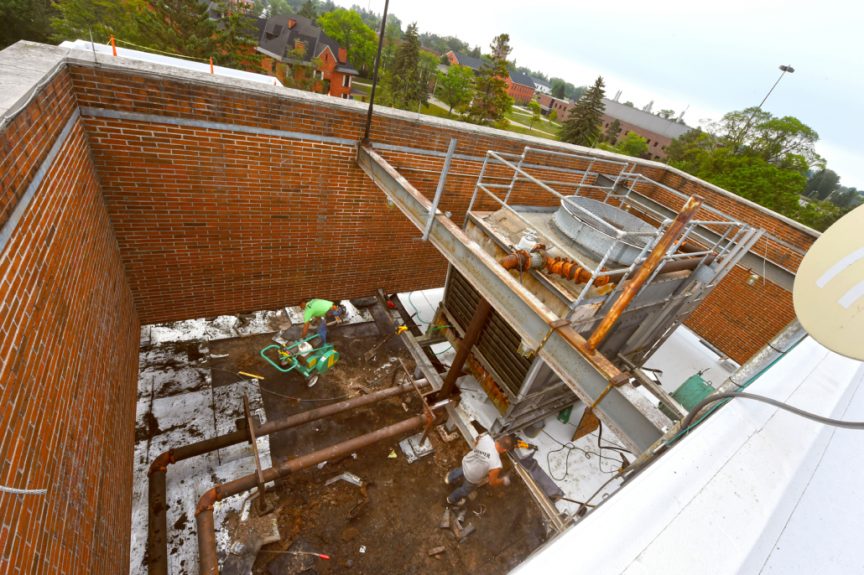Upgrades throughout the 41-building campus – such as new roofing, lighting, and upgraded heating, ventilation, and air conditioning systems (HVAC) systems – should be completed by winter 2020. These front-loaded upgrades will transition into a long-term performance contract with Milwaukee-based Johnson Controls (JCI) that is expected to generate $71 million in energy and operational savings over the course of 30 years.
The savings will be used to finance the bonds, but a majority of it will be rolled into initiatives like improving fire/safety systems, expanding keyless entry, and enhancing instructional facilities.
“This collaborative project with JCI is designed to serve as an example for our students and the community, as LSSU makes great progress in reducing its carbon footprint and reducing its energy costs,” said Rodney Hanley, president of Lake Superior State University. “Investment by LSSU into its infrastructure is focused on student safety and the educational environment.”
The project goes beyond energy savings. JCI and LSSU might team up on sustainability-based educational programs, internships, and community outreach projects.
The project’s bonding and smooth transaction translates into considerable savings right out of the gate that speak highly of LSSU’s fiscal health.
“Standard and Poor’s Financial Services assigned the University a rating of BBB+ and stable,” said Morrie Walworth, LSSU’s vice president for finance. “The rating agency cited the University’s positive operating results for the last two years, recent increases in state funding, and low debt burden in their rationale for rating of the University at this level.”
“We saw good demand and were able to take advantage of current low interest rates that met the goals of the University,” said Brenda Voutyras, whose firm brokered the bond sale. “This resulted in a lower cost of borrowing than originally anticipated.”
The General Revenue Bonds, Series 2018, were sold at a true interest rate of 4.30% with a final maturity of 2050, a repayment term of approximately 32 years. These costs and other incremental expenses will be more than offset by savings the infrastructure upgrade will generate.
About the Author
 John Shibley
John ShibleyPhotographer/Staff Writer
Shibley has been a writer, editor, photographer, and videographer in the public relations office since 1991, except for a five-year stint as hobby and planetary science editor at Astronomy magazine in the mid-90s, where he was a finalist for the American Astronomical Society’s Jonathan Eberhart Planetary Sciences Journalism Award.
